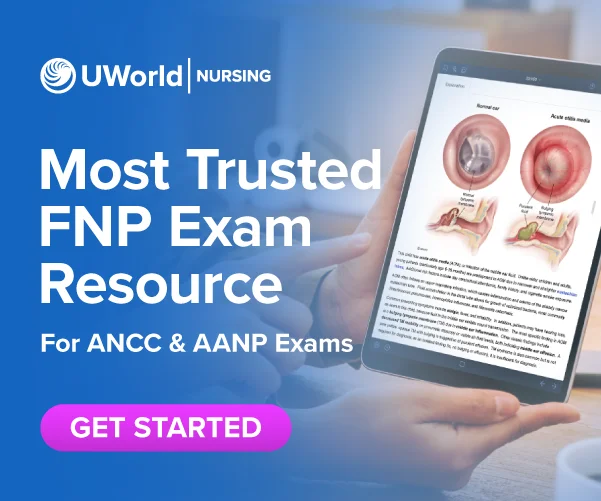Understanding the ANCC and AANP Certifications
The American Nurses Credentialing Center (ANCC) and the American Academy of Nurse Practitioners (AANP) each offer certification for FNPs. While both credentials are accepted nationwide, they reflect different organizational philosophies and credentialing approaches.
Credential Titles and Focus
ANCC grants the FNP-BC (Board Certified) designation and includes content beyond clinical practice—such as professional roles, ethics, and healthcare policy. AANP awards the NP-C (Certified) title and focuses exclusively on clinical knowledge and decision-making.
Ideal Candidate Profiles
The ANCC pathway may appeal to FNPs seeking roles in academia, leadership, or policy. AANP certification is often chosen by candidates who plan to work in direct patient care settings and want an exam focused solely on clinical scenarios.
Exam Format and Content Differences
While both exams test core competencies, their formats and emphases vary in ways that can affect your preparation strategy.
ANCC Exam Format
The ANCC exam includes 175 questions (150 scored and 25 unscored) and must be completed in 3.5 hours. It features multiple-choice questions as well as multiple-response, drag-and-drop, and hotspot formats. The exam covers not only clinical care but also nursing theory, professional practice, and policy.
AANP Exam Format
The AANP exam consists of 150 multiple-choice questions (135 scored and 15 unscored) with a 3-hour time limit. It focuses entirely on clinical scenarios across the lifespan, without questions related to research, leadership, or ethics.
Pros and Cons of Each Certification
Choosing between ANCC and AANP involves weighing their unique benefits and limitations.
ANCC
The ANCC exam's broader content and complex question formats can be a plus for those pursuing leadership or academic roles. Its recognition in magnet hospitals and emphasis on professional competencies enhance its versatility. However, the inclusion of non-clinical topics may not align with all FNP programs, and the question variety can add complexity to test prep.
AANP
AANP’s straightforward, clinically focused format is ideal for FNPs who want to concentrate on patient care. The simpler structure often makes it easier to prepare for and is preferred by many new graduates. However, its narrow focus may be limiting in settings that value broader nursing competencies.
Recertification Requirements
Both ANCC and AANP certifications are valid for five years, but the paths to renewal differ.
ANCC Recertification
To renew an ANCC credential, you must complete 75 continuing education (CE) hours (including 25 in pharmacology), log 1,000 clinical hours, and optionally participate in academic, scholarly, or professional development activities such as teaching or publishing.
AANP Recertification
AANP requires 100 CE hours, including 25 in pharmacology, plus 1,000 hours of clinical practice. Alternatively, you can retake the certification exam instead of submitting CE hours.
Making Your Decision
Your ideal exam depends on your long-term goals, preferred exam structure, and employment context.
Career Considerations
Choose ANCC if you envision working in academic institutions, policy organizations, or leadership roles. Its broader recognition and inclusion of non-clinical competencies may support career advancement in those areas. If you are focused on primary care or outpatient settings and want to get certified with a clinically focused exam, AANP may be the better fit.
Testing Style Preferences
If you are confident handling mixed question formats and a wider content range, ANCC may play to your strengths. If you prefer a test format that reflects clinical scenarios without additional complexity, the AANP exam likely offers a more streamlined experience.
Whichever path you choose, both certifications provide a strong foundation for FNP practice. For more support on your journey, explore our FNP Review Course or hear from our students who have taken both routes.








